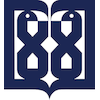The Stem Cell Transplant Fellowship Training Program at TUMS Hematology-Oncology and Stem Cell Transplantation Research Center offers a one-year opportunity for board-certified physicians in the field of internal medicine, particularly hematologists-oncologists who wish to pursue further training in stem cell transplantation.
TUMS Hematology-Oncology and Stem Cell Transplantation Research Center is based at Shariati Hospital. This Institute consists of a medical oncology ward, a hematology ward, BMT wards (adults and pediatrics), a post-bone marrow transplant ward, an emergency ward, as well as well-equipped laboratories. This research center, with more than 5,000 transplants including mesenchymal stem cell transplantation, autologous and allogeneic HSCT from related and unrelated donors or haploidentical and umbilical cord blood transplantation, is one of the largest stem cell transplant centers in the world. Since its establishment in 1991, the medical team in charge of this has acquired extensive experience in providing clinical services and treatment for a variety of malignant/non-malignant hematologic disorders including leukemia, inherited abnormalities of RBC, plasma cell disorders, lymphomas, severe aplastic anemia, MDS/MPs, solid tumors, disorders of the immune system, auto-immune diseases, inherited disorders of metabolism, and histiocytic disorders.
The aims of the transplant fellowship training program are focused on assessing the status of patients’ before transplantation, identifying and selecting stem cell sources, using donor registries, utilizing different methods of HLA typing and cryopreservation for storing stem cells, identifying indications for transplantation, administering high-dose chemotherapies, managing neutropenic fever and bacterial/viral/fungal diseases in patients, and diagnosing and managing acute/chronic GvHD and regimen-related toxicities.
Fellows will participate in both inpatient and outpatient care settings, and they are expected to become involved in clinical research projects. They must also actively participate in slide interpretation classes, tumor boards, the journal club, conferences held at national and international levels, weekly conferences, and one-day seminars.


 Founded in 1934, Tehran University of Medical Sciences is a non-profit public higher education institution located in the urban setting of the metropolis of Tehran (population range of over 5,000,000 inhabitants). This institution has also branch campuses in the following location(s): Kish Island. Officially accredited and/or recognized by the Ministry of Health and Medical Education, Iran, Tehran University of Medical Sciences (TUMS) is a large (uniRank enrollment range: 15,000-19,999 students) coeducational higher education institution. Tehran University of Medical Sciences (TUMS) offers courses and programs leading to officially recognized higher education degrees such as pre-bachelor degrees (i.e. certificates, diplomas, associate or foundation degrees), bachelor degrees, master degrees, doctorate degrees in several areas of study. See the uniRank degree levels and areas of study matrix below for further details. This 85 years old higher-education institution has a selective admission policy based on students' past academic record and grades. The admission rate range is 10-20% making this Iranian higher education organization a most selective institution. International students are welcome to apply for enrollment.
Founded in 1934, Tehran University of Medical Sciences is a non-profit public higher education institution located in the urban setting of the metropolis of Tehran (population range of over 5,000,000 inhabitants). This institution has also branch campuses in the following location(s): Kish Island. Officially accredited and/or recognized by the Ministry of Health and Medical Education, Iran, Tehran University of Medical Sciences (TUMS) is a large (uniRank enrollment range: 15,000-19,999 students) coeducational higher education institution. Tehran University of Medical Sciences (TUMS) offers courses and programs leading to officially recognized higher education degrees such as pre-bachelor degrees (i.e. certificates, diplomas, associate or foundation degrees), bachelor degrees, master degrees, doctorate degrees in several areas of study. See the uniRank degree levels and areas of study matrix below for further details. This 85 years old higher-education institution has a selective admission policy based on students' past academic record and grades. The admission rate range is 10-20% making this Iranian higher education organization a most selective institution. International students are welcome to apply for enrollment.